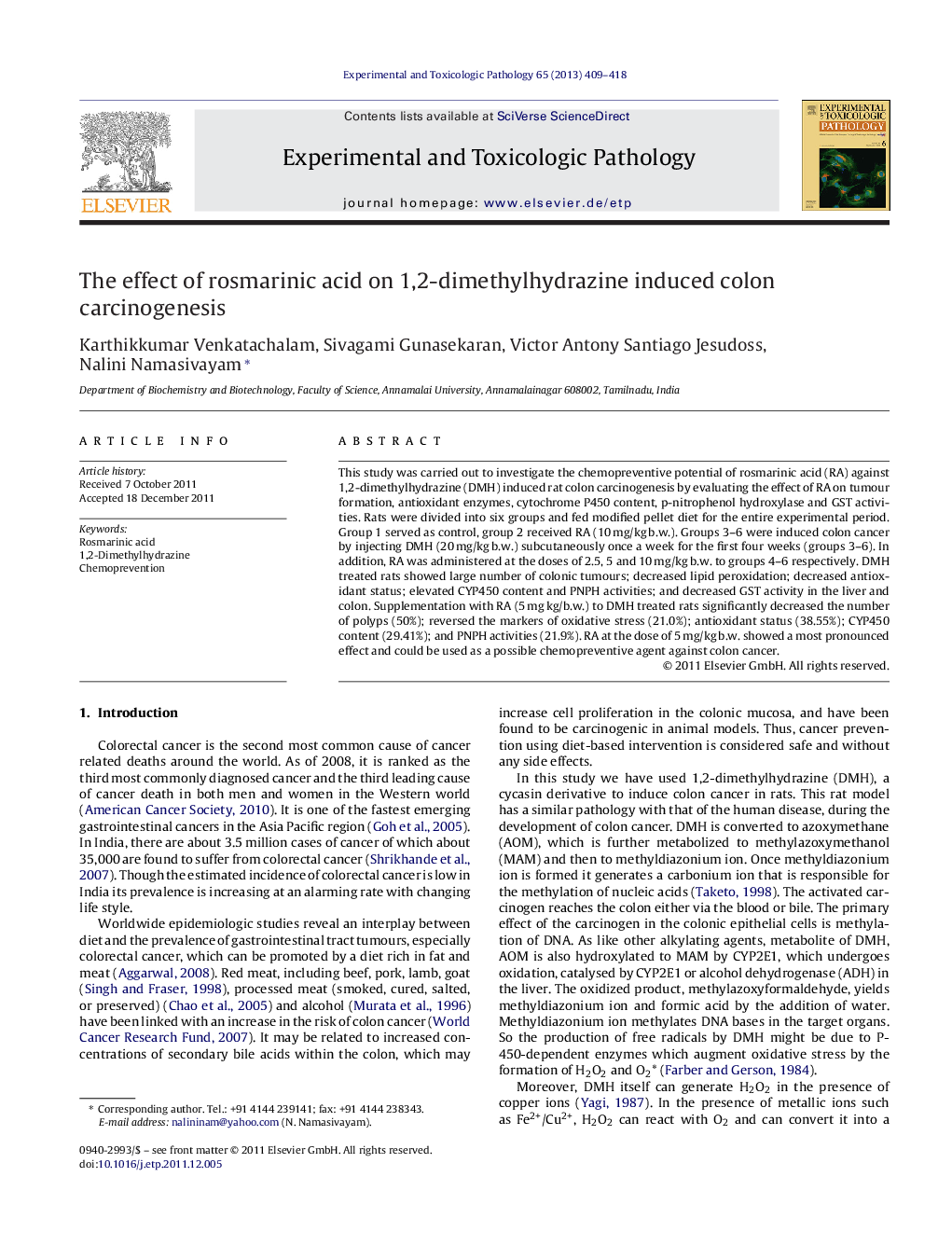| Article ID | Journal | Published Year | Pages | File Type |
|---|---|---|---|---|
| 2499072 | Experimental and Toxicologic Pathology | 2013 | 10 Pages |
This study was carried out to investigate the chemopreventive potential of rosmarinic acid (RA) against 1,2-dimethylhydrazine (DMH) induced rat colon carcinogenesis by evaluating the effect of RA on tumour formation, antioxidant enzymes, cytochrome P450 content, p-nitrophenol hydroxylase and GST activities. Rats were divided into six groups and fed modified pellet diet for the entire experimental period. Group 1 served as control, group 2 received RA (10 mg/kg b.w.). Groups 3–6 were induced colon cancer by injecting DMH (20 mg/kg b.w.) subcutaneously once a week for the first four weeks (groups 3–6). In addition, RA was administered at the doses of 2.5, 5 and 10 mg/kg b.w. to groups 4–6 respectively. DMH treated rats showed large number of colonic tumours; decreased lipid peroxidation; decreased antioxidant status; elevated CYP450 content and PNPH activities; and decreased GST activity in the liver and colon. Supplementation with RA (5 mg kg/b.w.) to DMH treated rats significantly decreased the number of polyps (50%); reversed the markers of oxidative stress (21.0%); antioxidant status (38.55%); CYP450 content (29.41%); and PNPH activities (21.9%). RA at the dose of 5 mg/kg b.w. showed a most pronounced effect and could be used as a possible chemopreventive agent against colon cancer.
